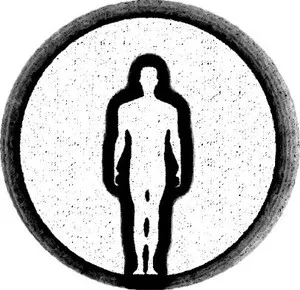
The Only Sound
THE ONLY SOUND
MANCHESTER
ENGLAND
www.fadeuk.com
Tell me about your history? How did you get where you are now?
The Only Sound History.
'THEOS' emerged from the ashes of early-eighties musical collective Eminent III (nee Second Thought). A loosely-based, shambolic outfit which consisted of a range of musical hopefuls too numerous to remember but with a core membership of Kevin Renshaw (keyboards), Steve Brown (keyboards, vocals), David Lockley (bass, vocals) and Steve Pearson (keyboards) and a drum machine called...well, actually the drum machine didn't have a name. That's just how hip Eminent III were.
Pearson was sacked in a manner as callous and/or as amusing as the ousting of Pete Best from the Beatles while Renshaw left of his own accord to pursue his love of American MOR soft rock, (i.e., Styx, Foreigner, etc) may God have mercy on his soul.
Having divested themselves of all other hangers-on, Brown and Lockley formed the first incarnation of 'THEOS'.
Using drum machines, synthesisers, backing tapes and a bass guitar, the duo quickly built up an extensive repertoire of electro-based, pelvis-wiggling, bowel-loosening, vibrant pop gems such as Face to Face, Who Does She Remind You Of? and On the Promenade. This was in addition to a diverse collection of cover versions which took in the infectious synth-fascism of Gary Numan to the sophistication of Burt Bacharach.
At this stage, neither the group nor the drum machine had a name. Ideas came thick and fast and included Terminus International and Service Revolver. The rather more succinct 'Fade ' was chosen, both for its enigmatic qualities and also for the savings the duo would make in Letraset. They had a name. They had the songs. Now all they needed were gigs.
Eminent III had gigged quite extensively throughout the Salford and Manchester areas so neither Steve or David were strangers to treading the boards before a live audience. However, it proved surprisingly difficult to persuade club owners to take a chance on the clinical, dance-tastic format of drum machine, synthesiser and mindless optimism which comprised Fade in those dimly-remembered days of the mid-eighties. Surprising perhaps considering that this was the era when the Pet Shop Boys and Erasure were the emperors of planet Pop. Nevertheless, Fade were undaunted and decided to roughen up their sound a bit. The inclusion of an actual drummer was deemed too drastic a move, (for a start, a drummer would insist on having a name) so advertisements went up in music shops all over the area asking for guitarists to audition.
The search culminated in a pub called the Half Moon Inn where Steve and David interviewed a disarmingly tall guitarist by the name of Mike Millington. After a brief chat it quickly transpired that Mike hated everything that Fade liked and Fade, in turn, hated everything that Mike liked. On that basis, Mike was duly signed up and the new trio started rehearsing in the cellar of a pet shop in Eccles, (yes, we were the real pet shop boys).
While all this was going on, a certain blond acquaintance of David's by the name of Martin Orr was living the life of a rampant student in Ripon and dreaming of a future as a pop star. How soon those dreams would be quashed.
With Mike on board, Fade now launched themselves into the most frenetic period of gigging of their career. They played anywhere, whether people wanted them to or not. From Bolton Town Hall to back street pubs, from violent dives to labour clubs, no-one was spared.
After a year of this, however, Mike decided that leaving the country might be advisable. Actually it was his job which took him to Germany and left Fade without a guitarist.
It was just round about this time, as fortune would have it, that Martin moved back into the Manchester area and decided to look around for a happening, dynamic, ambitious group who were destined to hit the top. Instead, he joined Fade.
Incorporating Martin's epic ballads into the repertoire to supplement David's two-minute smash-and-grab pop ditties, Fade once again launched themselves into the gig circuit.
The Boardwalk, The Swinging Sporran, Manchester Polytechnic, you name it, Fade gigged there.
After a few years of this, the band became disillusioned with the false and largely pointless rigmarole of playing to empty pubs or crowds of close friends and work-related acquaintances and, like the Beatles before them, decided to ignore the road in favour of honing their song-writing and recording skills to a fine edge.
And the rest, as they say, is history.
An anachronism to many, a non-entity to many others, Fade still exist because of their love of music and their unshakeable faith in their art. Fade still make music because their optimism and creativity still shine within them, regardless of the passing of time and the crushing weight of frustration and indifference on the part of an ignorant world Fade are still here. Please listen.
By the way, the drum machine still doesn't have a name.
The Story Goes On!
Have you performed live in front of an audience? Any special memories?
Occassionally now, to prove we're still breathing.
Your musical influences
OMD,The Smiths, Tears For Fears, Bill Nelson, The Stranglers, the Db's, The Comsat Angels and may others too obvious to mention
What equipment do you use?
see our domain www.fadeuk.com